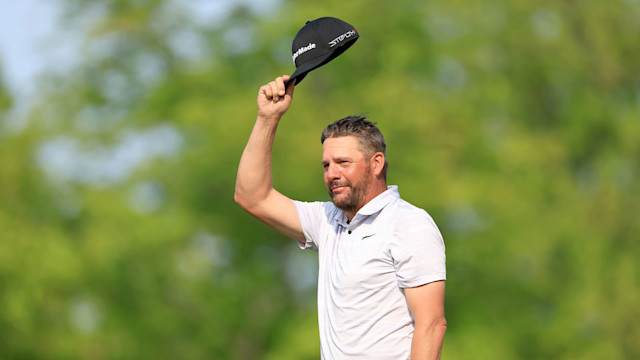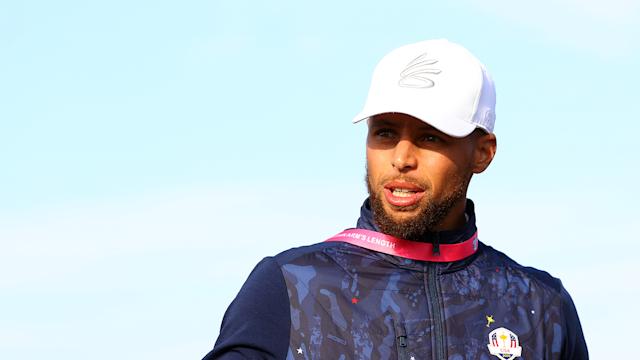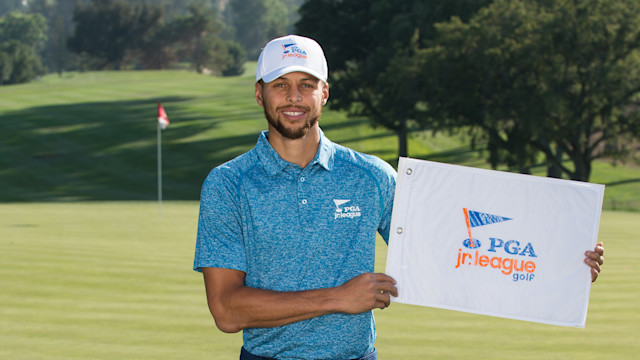Hot Takes
Golf: Your Favorite Athlete's Favorite Sport
By Adam Stanley
Published on
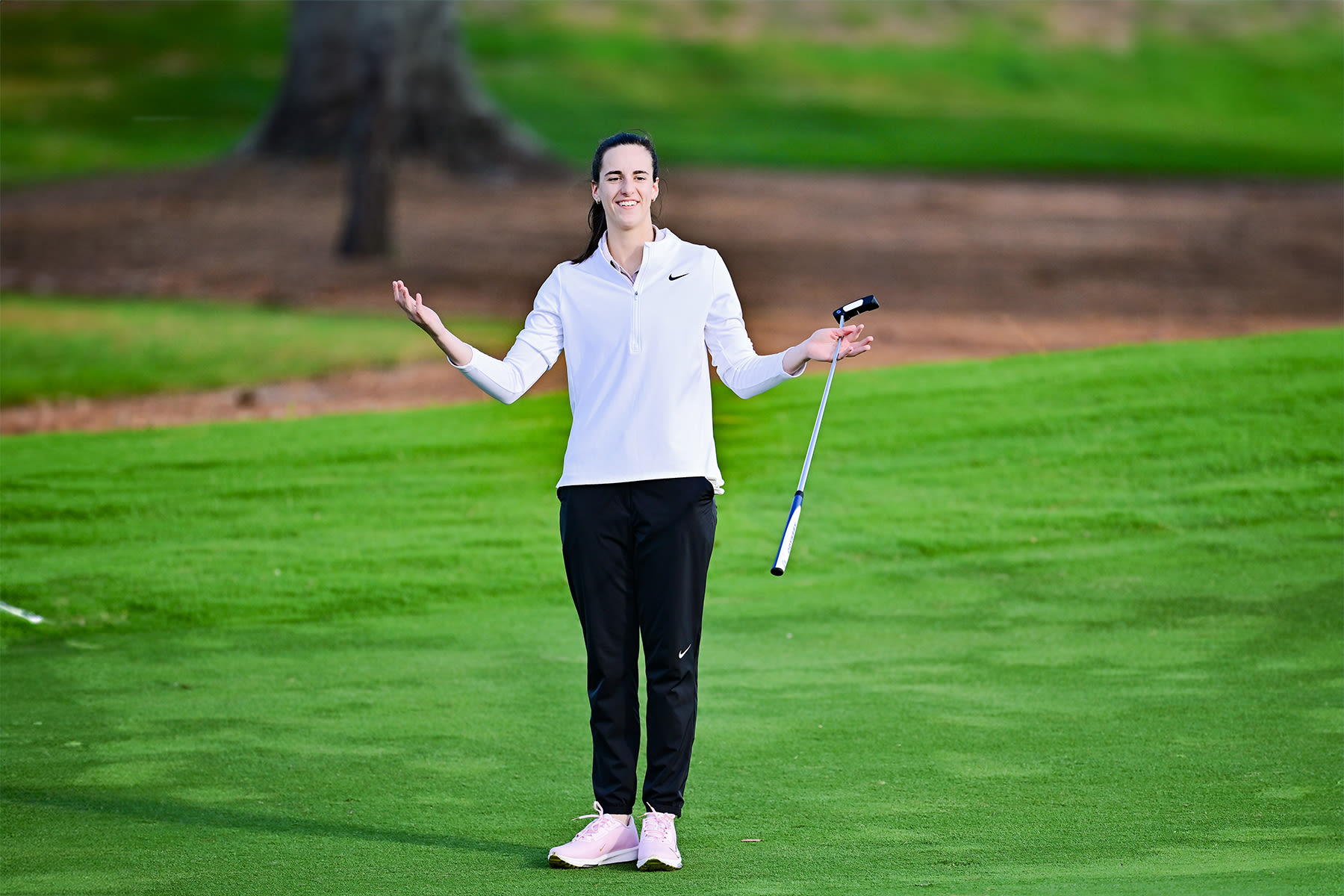
It’s hard to argue with how cool golf is these days. In fact, beyond perhaps peak – Tiger Woods in the early 2000s, the sport has likely not had as big a moment as what it’s going through right now.
That’s, in large part, due to the athletes of other sports who have picked up the game and unabashedly said that they like – love! – the game just as much as anyone else.
From accountants to zookeepers, golf is a game for everyone – including those at the top of their game.
Caitlin Clark is a perfect example.
The WNBA superstar and the league’s rookie of the year this past season said, after her team, the Indiana Fever, were eliminated from the playoffs, that she planned to play golf until it became too cold in Indiana and her off- season plans included, jokingly, to try to become a pro.
“Everybody thought I was serious. I was not serious. I love it. I love being outside and making it competitive with my friends,” Clark said in November.
“It’s challenging and getting to come here and be around the best and have a good time is what I’m looking forward to.”
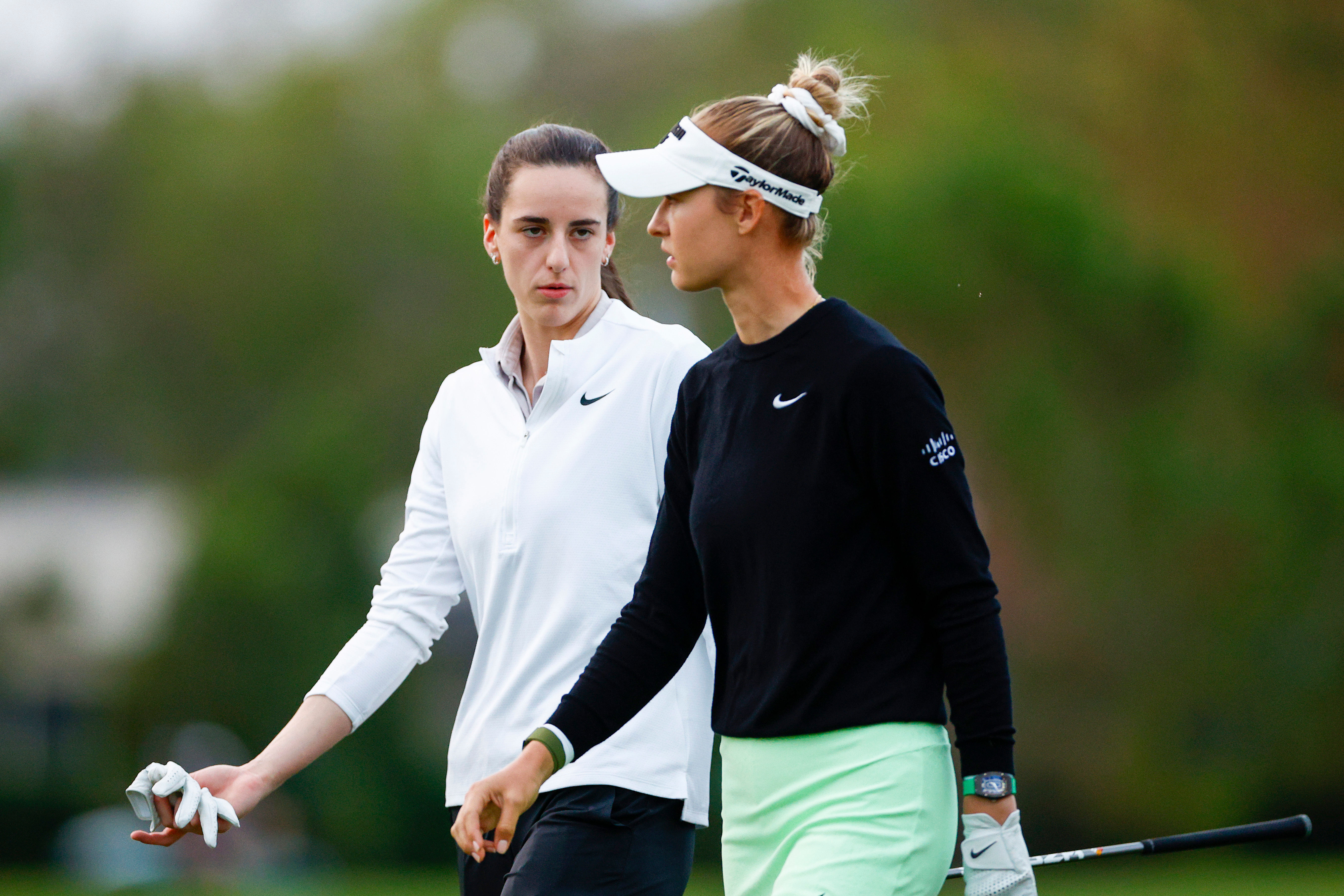
Caitlin Clark and Nelly Korda
‘Here’ in this instance was teeing it up alongside world No. 1 Nelly Korda – and the icon herself, Annika Sorenstam – in an LPGA Tour pro-am a few weeks ago at Pelican Golf Club in Florida. She also pegged it with Zach Johnson at the pro-am for The RSM Classic the following week. That was her third time playing alongside the pros, as she played the pro-am at the John Deere Classic while she was attending Iowa in 2023.
“She gets it,” Johnson, a 2023 American Ryder Cup captain, said. “We’ve witnessed that time and time again, and still witnessing that … She’s in rare air; we talk about her talent on the court, and she’s raised the bar, she’s pushed the ceiling up in, frankly, women’s sports, but women’s basketball… but I say all that, she’s an even better person off the court. She’s quality all the way.
“She’s trying to play a lot … it’s hard; she’s got priorities, but she loves the game. It’s a good escape for her, as it should be.”
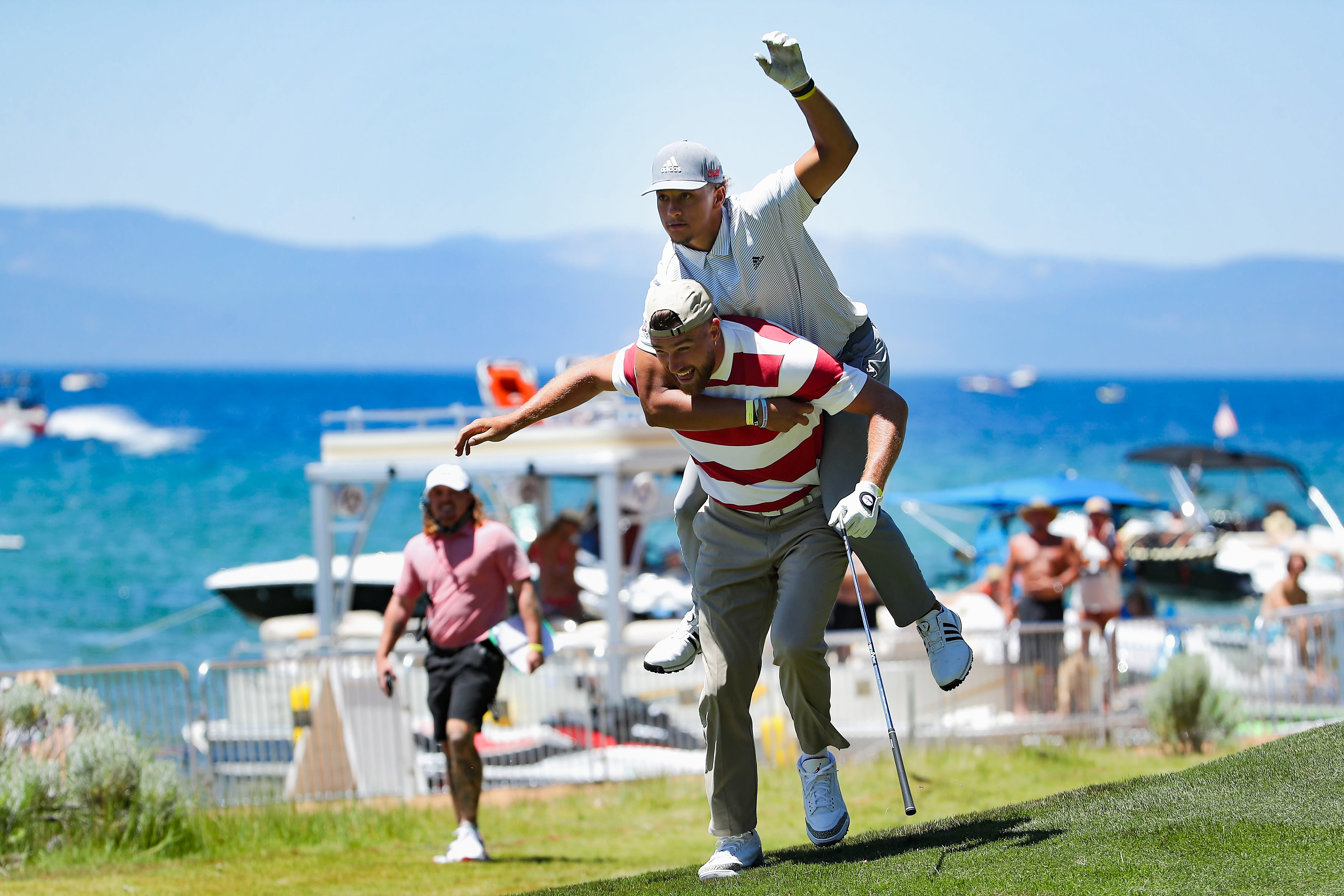
Travis Kelce and Patrick Mahomes
Professional athletes turning to golf is certainly not a new phenomenon.
They’ve teed it up at various PGA Tour and Korn Ferry Tour events and it’s often they’re inside the ropes at events around the world. Michael Jordan’s golf stories are legendary. Hockey players, baseball players, soccer stars, and NFL studs like the Kelce brothers (Travis and Jason) are all golfers.
Plenty are now involved with the game in a variety of ways including some like Derek Jeter and Eli Manning joining the investment group of the new New York Golf Club of the Tiger Woods and Rory McIlroy - founded TGL.
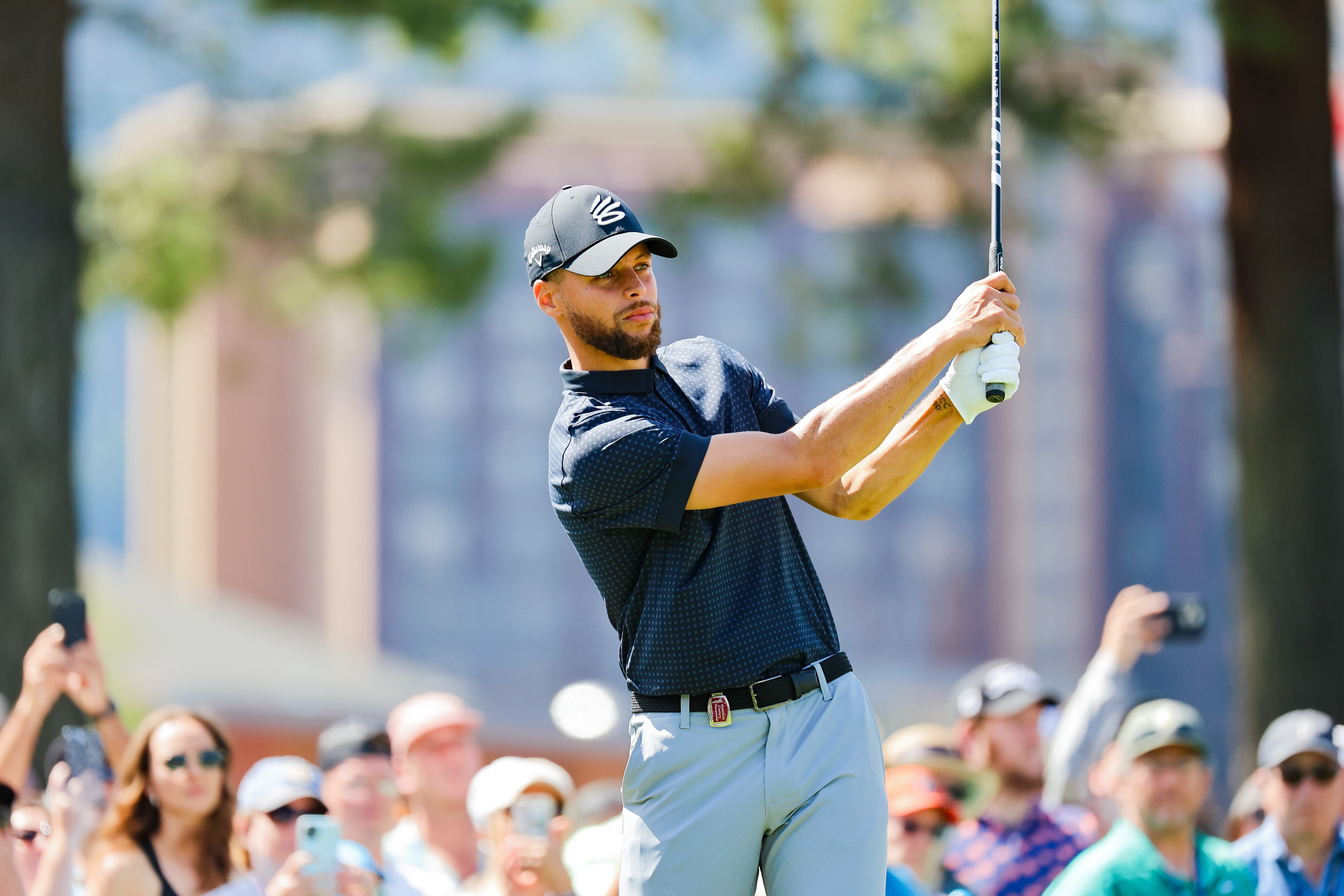
Steph Curry
Stephen Curry, the Golden State Warriors NBA star, is, perhaps, involved in golf more than any other athlete these days. He teed it up on the Korn Ferry Tour a few. years ago, has a +1 handicap, was named the 2023 Ambassador of Golf Award winner by the PGA Tour. His impact in golf goes well beyond the course, as he, in 2019, partnered with Howard University to bring a DI golf team to the school for both men and women. He also, in 2021, founded UNDERRATED Golf, a purpose driven business endeavor with the overarching commitment to provide equity, access and opportunity to student-athletes from every community by balancing participation in the sport to truly reflect our society.
“It’s something about this game,” Curry told NBA.com recently. “I don’t know how to explain it, but it brings a lot out of you.”
But what is that something?
“It's become a purpose for them, it’s something they can pour themselves into,” Charlene Bendt, the PGA Golf Professional at Gentle Creek Country Club in Texas, says about why retired athletes – or just athletes in general – find solace in the game.
Bendt, who has been a PGA pro for 10 years, worked under Jaime Mulligan – the 2021 Teacher of the Year – and played college golf at UCLA. She tells a fun story of how, at a clinic with players on the Dallas Wings of the WNBA, many were just getting started with the game. But once someone suggested a little competition, the women completely switched their approach to things.
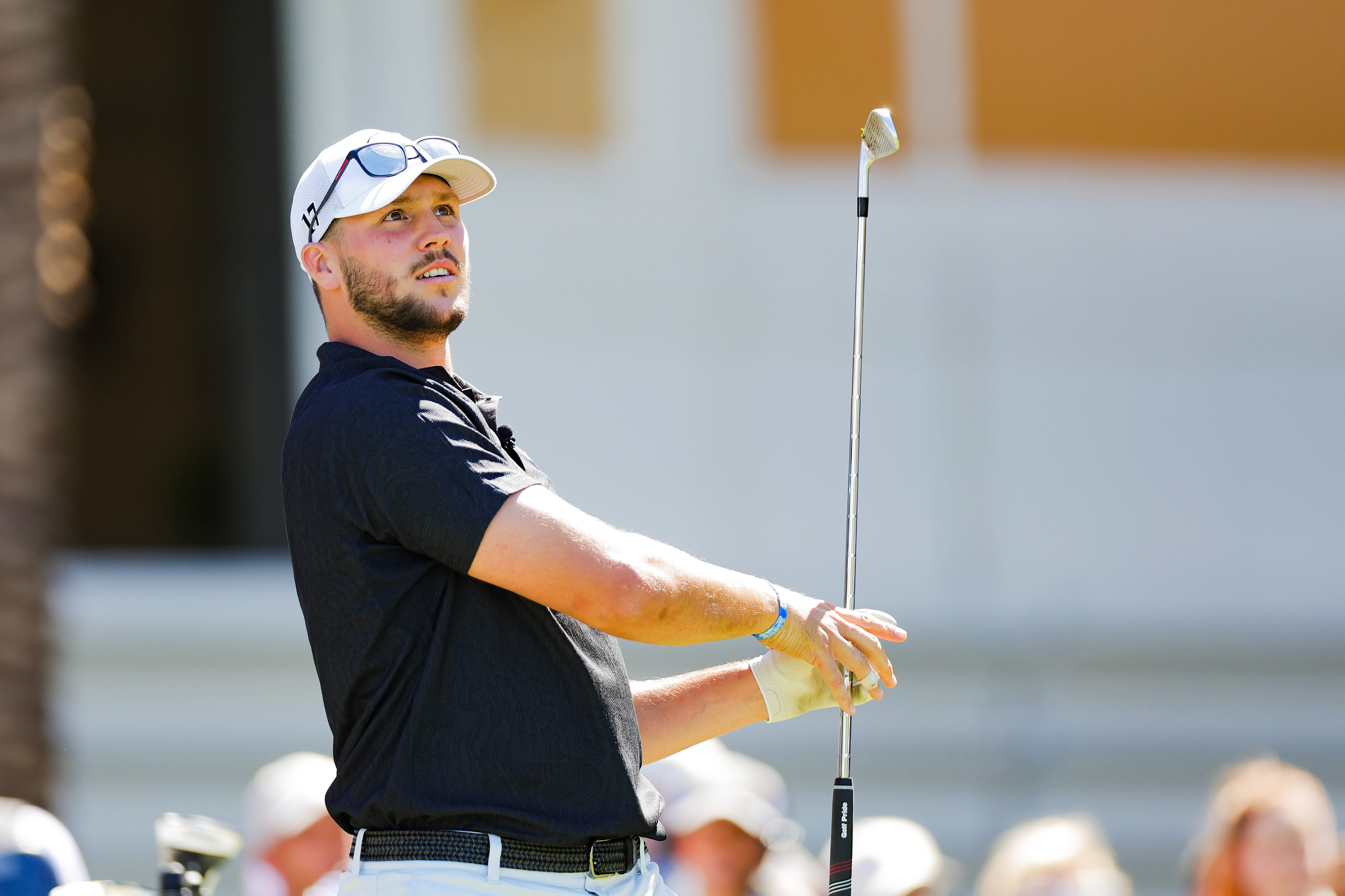
Josh Allen
“All of a sudden, these girls – who are obviously super unbelievable athletes – looked completely different. They went from lighthearted to locked in. You could feel it and you could see it and they all performed better too,” says Bendt. “When there’s something on the line, the girls that even really struggled, they were doing it. It was really neat. And fun to see, too.”
There are obvious, well-documented physical benefits to golf – even for professional athletes – but the mental side of the sport has been the thing that Bendt has seen amongst athletes as a key prompt of joy.
“One of the surprising parts when you’re retiring – as an athlete – you’re losing a bit of certain identity and maybe there is a void there and golf can really fill that void,” she explains. “The comradarie is a big piece of it (and) what has amazed me over the years is how much people are getting out of the mental aspect of golf.
“You’re in the same place with your mind and your body and it’s source of why it’s healthy for people. It can be a moving version of a meditation where you have to get really narrow and specific for one thing at least for a few seconds. That’s a great skill for us to have and a very positive thing for mental health.”
So, whether you play backyard baseball or launch dingers at Dodger Stadium (or used to), golf continues to show it’s a game for all, and it’s never been cooler to play this game. “(Athletes) can challenge themselves in different ways, see personal growth, and celebrate all the little wins along the way,” Bendt says. “It’s such a cool part.”
